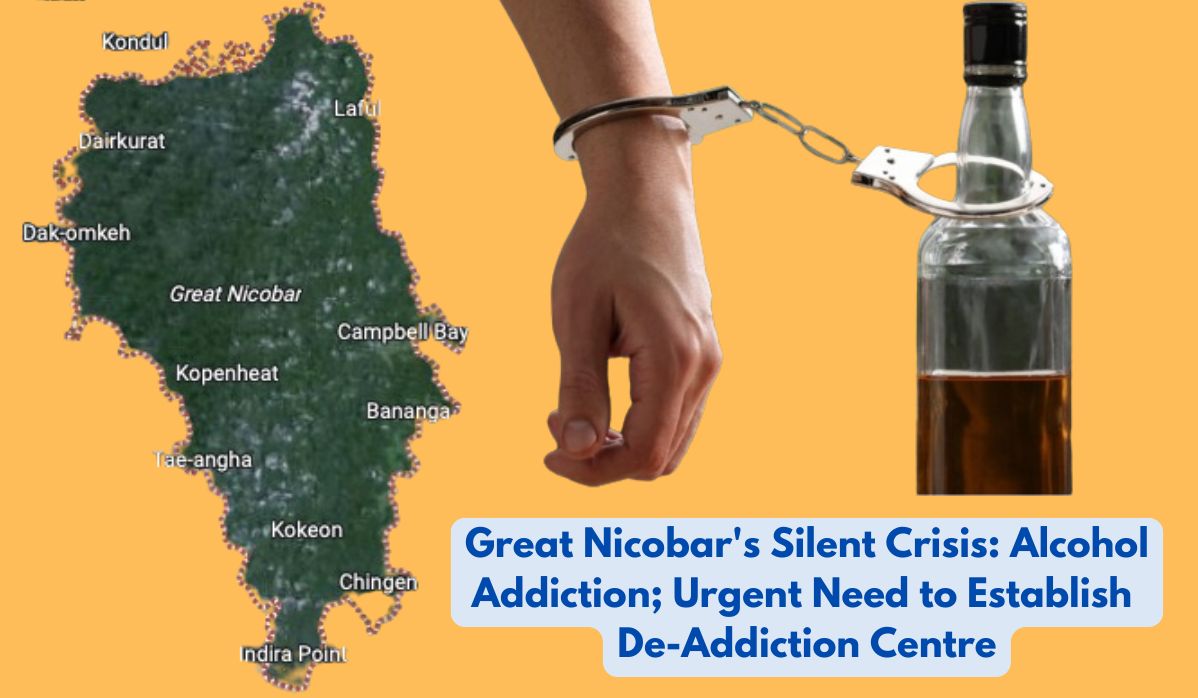Tarun Karthick
Campbell Bay, 22 August 2024
The island of Great Nicobar, the only place in the Nicobar District where alcohol is legally available, is grappling with a severe alcohol addiction crisis. Despite its small population of just over 8,000 residents, alcohol consumption on the island is alarmingly high. With no bars in operation, the sole legal outlet for alcohol is a single wine shop managed by ANIIDCO. However, illegal liquor shops have proliferated across all settlements, exacerbating the problem.
The situation has deteriorated over the years, with many minors in this remote island now falling prey to alcohol addiction. The problem has become so severe that numerous individuals have abandoned their livelihoods to become full-time alcoholics. These individuals often take on odd jobs solely to fund their addiction, spending their days and nights in a perpetual state of intoxication.
The island’s pervasive drinking culture has begun to affect even visitors and government servants stationed there. Reports have emerged of government employees succumbing to the island’s alcohol-fueled environment. One MTS (Multi-Tasking Staff) posted in Great Nicobar is frequently seen wandering in an inebriated state, having sold off personal belongings to buy alcohol.
The lack of family support for many government employees posted in Great Nicobar further exacerbates the issue, leading to increased alcohol consumption among these individuals.
Despite the mounting crisis, Great Nicobar lacks a de-addiction facility. The island’s only fully functional health facility, PHC Campbell Bay, is already overwhelmed by the increasing number of patients and is understaffed. The facility is currently unable to take on the additional burden of providing de-addiction services without further straining its limited resources.
There is an urgent need for the establishment of a permanent de-addiction center in Great Nicobar, equipped with qualified counselors to help the youth break free from the grips of alcohol addiction. Such a center would also require dedicated doctors, healthcare staff, and caregivers to support the recovery process.
In the meantime, small NGOs operating in the islands, along with the local administration, could take the initiative to organize de-addiction camps. Deploying qualified counselors to identify addicts and encourage them to participate in de-addiction programs could be a vital first step in addressing the crisis.
The health of the youth in Great Nicobar is at serious risk due to excessive alcohol consumption. Without immediate intervention, the island may soon face a wave of alcohol-related illnesses and deaths, underscoring the critical need for prompt and effective action.

